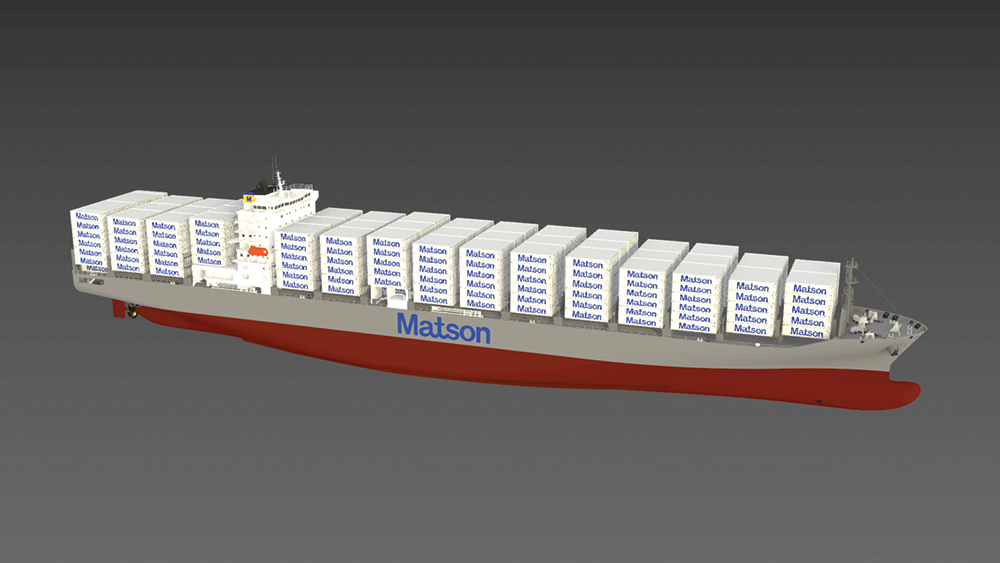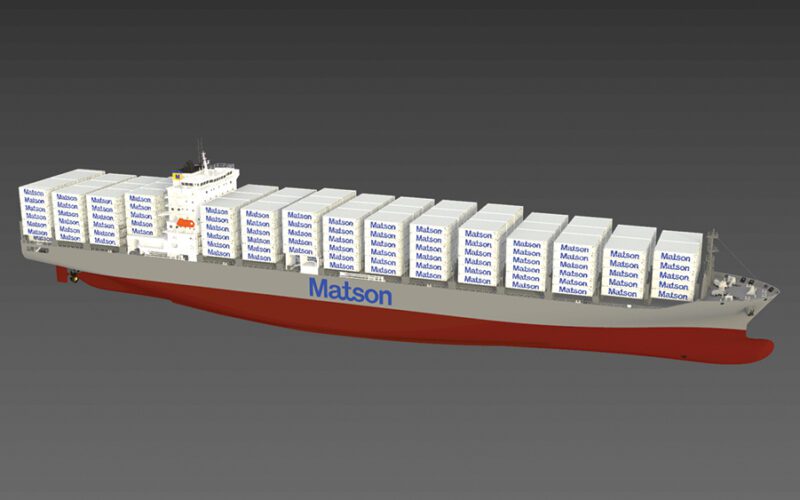
Philly Shipyard, Inc. has been selected by Hawaii-based ocean transportation and logistics services provider Matson Navigation Co. to construct three Aloha Class LNG-fueled containerships.
The award is valued at about $1 billion. The vessels are contracted for delivery in 2026 and 2027. With the three containership contract from Matson, Philly Shipyard’s order book is now the largest in its 25 year history at over $2 billion, the company said.
“Winning this order creates historic backlog for Philly Shipyard, as well as great visibility through 2027 for its shareholders and other stakeholders,” Philly Shipyard Board Chair Kristian Rokke stated. “Long term, it also supports the yard’s vision to deliver quality vessels, while pivoting between commercial and government contracts.”
The shipyard previously delivered four containerships to Matson between 2003 and 2006 and two more containerships to Matson, also known as the Aloha Class, in 2018 and 2019.
“Our existing Aloha Class ships are among the fastest, most efficient vessels in the Matson fleet,” Matson Chairman and Chief Executive Officer Matt Cox said. “These new Jones Act compliant vessels will be built specifically for our China-Long Beach Express (CLX) service, and like their sisterships, are expected to help Matson achieve its 2030 greenhouse gas emissions reduction goal while also providing additional capacity and speed benefitting our Hawaii service as well as the CLX.”
Designed to measure 854 feet long, the three new Aloha Class vessels would match the length of the two existing Aloha Class ships, currently among the largest Jones Act containerships ever built.
The 3,600 TEU vessels are capable of carrying a variety of container sizes and operating at speeds in excess of 23 knots. The vessels would be able to operate on either conventional marine fuels or liquefied natural gas and will incorporate other “green ship technology,” supporting Matson’s goal to reduce greenhouse gas emissions, the company said in a statement.

